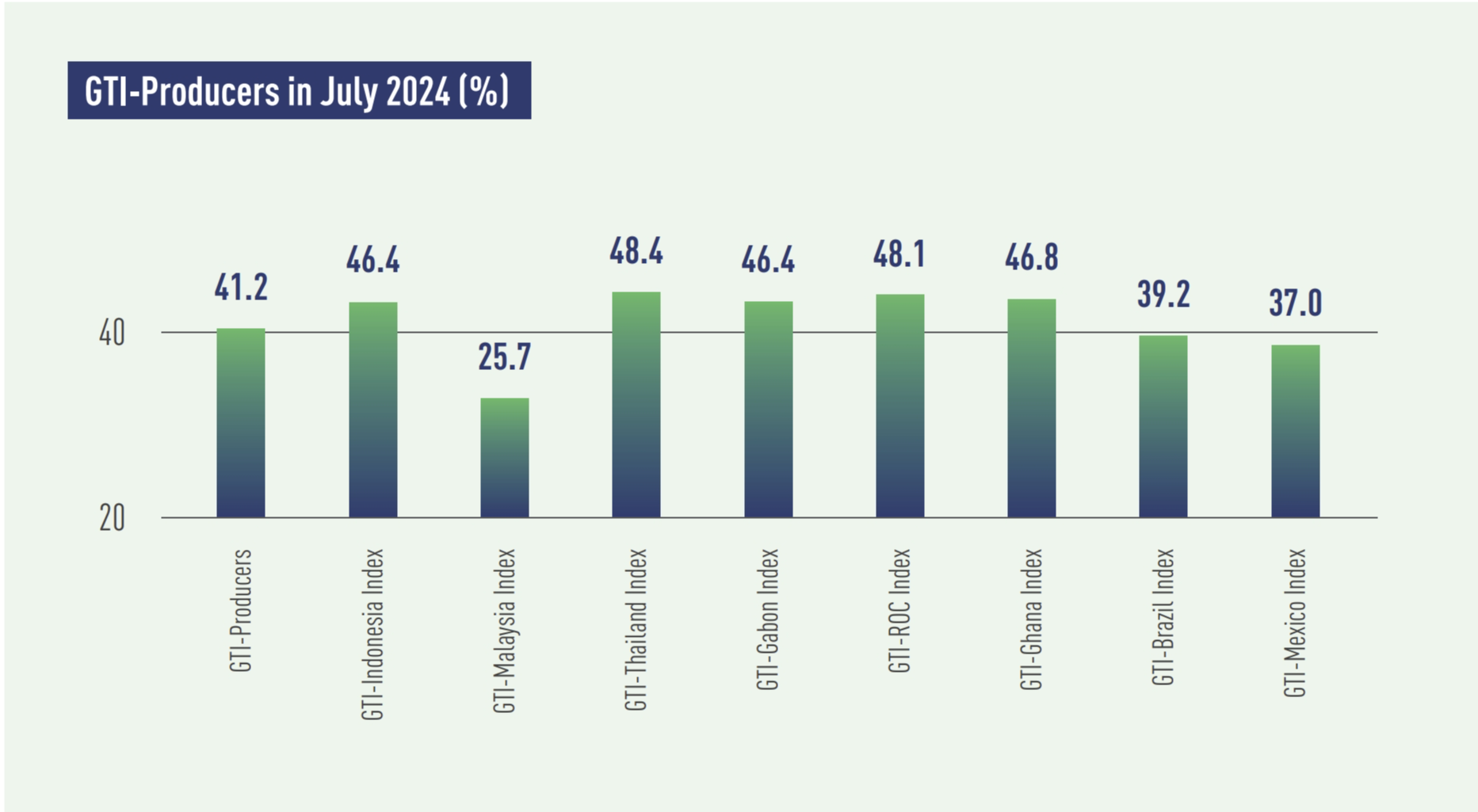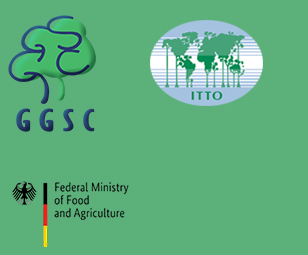

In July 2024, the GTI-Producers registered 41.2% and had stayed below the critical value (50%) for three consecutive months, indicating a continued downturn for the overall prosperity of the timber harvesting and primary processing industries in the pilot producing countries.
In Asia, the GTI indexes for Thailand, Indonesia, and Malaysia registered 48.4%, 46.4%, and 25.7%, respectively, all in the contraction range below the critical value. Compared to the previous month, Indonesia's timber harvesting continued to grow in volume, Thailand's harvesting volume remained relatively stable, while Malaysia's timber harvesting had been decreasing for several months; looking at production and processing, the production volume had decreased in all three countries; in terms of demand, Indonesia's volume of orders was largely stable, Thai enterprises had further increased their orders on hand, while Malaysia's domestic and foreign demand remained sluggish, and GTI-Malaysia sample enterprises suggested appropriately slowing down production and hoped the government could provide support to promote the consumption of wood products. Besides, GTI-Indonesia sample enterprises proposed efforts to encourage and promote the marketing of plywood products and encourage the provision of incentives for SFM-certified or legal wood products from various certification schemes in the global and domestic markets.
In Africa, the GTI indexes for the Republic of the Congo (ROC), Ghana, and Gabon were at 48.1%, 46.8%, and 46.4%, respectively, all in the contraction range below the critical value. On the supply side, the timber sector in Gabon had seen some improvements, with both timber harvesting and production volumes increasing compared to the previous month; in ROC, the volume of harvesting had slightly decreased, while production remained relatively stable; however in Ghana, with frequent forest fires that led to low production of raw materials for the timber sector, the production activities was hindered by problems such as shortage of raw materials and significant increase in the material prices. On the demand side, the ROC's new orders remained relatively stable in volume, while both Gabon and Ghana saw a decrease in domestic and overseas orders.
In Latin America, the GTI indexes for Brazil and Mexico registered 39.2% and 37.0%, respectively, both in the contraction range below the critical value. Affected by limited market demand, Brazil's timber harvesting and production had both declined in volume, and its number of orders had also decreased following an increase last month. Additionally, challenges such as insufficient port berths and worker strikes had severely restricted the export efficiency. In Mexico, the overall timber harvesting and market sales were in a state of contraction. Meanwhile, the imported wood products and the alternative products such as iron, aluminum, and PVC had hindered the development of its timber sector, so the enterprises hoped the government could enhance import controls and promote the development of local businesses.

| E-mail:ggsc@itto-ggsc.org | Tel:86-10-62888626 |


Sigh Up for Emails |
|